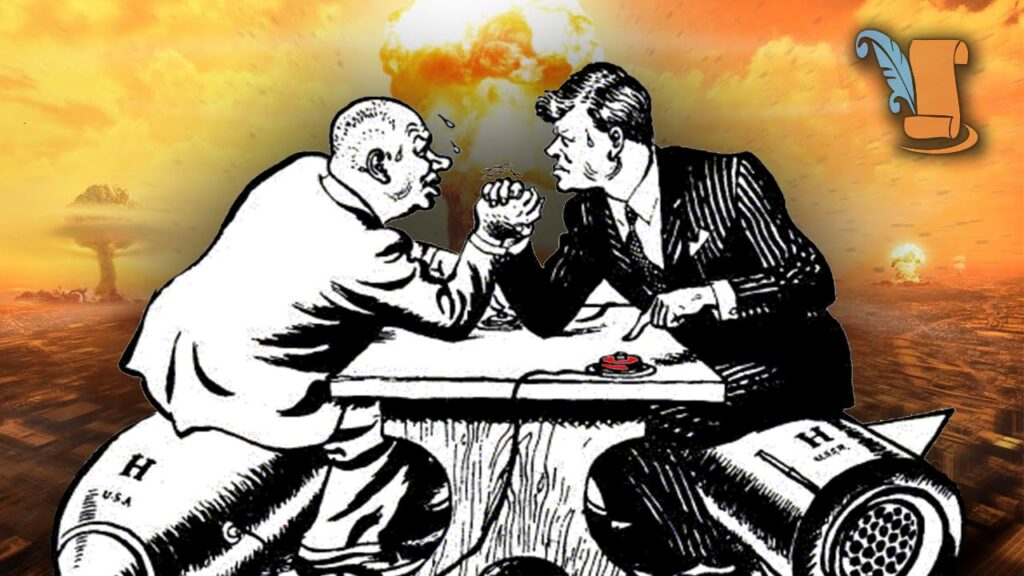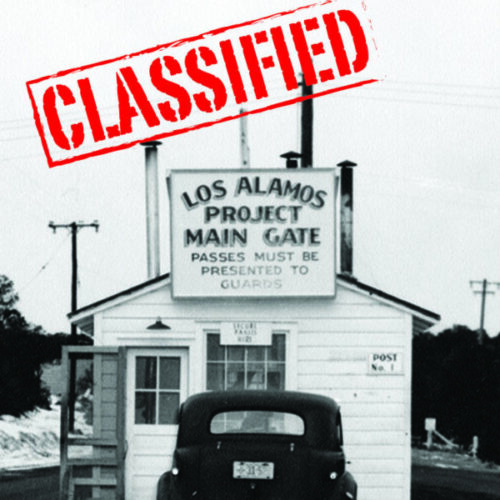
Most Americans incorrectly assume that the The Cuban Missile Crisis of 1962, started when the Soviet Union (i.e, Russia) attempted to place nuclear weapons in Cuba. While that is perhaps the short answer to a very complex problem from an American perspective, what triggered the Russian aggression was the United States deploying nuclear missiles in Turkey and Italy, that were within striking distance of the Soviet Union.
Americans are taught that a strong-willed President Kennedy prevailed in his standoff with Soviet leader Nikita Khrushchev. What we are not taught, but what Russian children are, is that Khrushchev achieved what he considered complete victory because he got Kennedy to publicly pledge the United States would never invade Cuba, and the nuclear weapons in Turkey were removed.
To appreciate the complexity of any crisis, it is essential to understand all sides. The Russians can no more tolerate nuclear weapons along their border than Americans can. From the Russian perspective, the provocative act of American aggression that arose from placing missiles in Turkey was defeated through Khrushchev’s confrontation with Kennedy. Just as much as the Cuban Missile Crisis became of source of American pride that shaped our foreign policy principles, it was a source of Russian pride and shaped their foreign policy principles. For both nations, a cornerstone of foreign policy is that weapons of mass destruction shall not be allowed along their borders.
Today this foreign policy is more a matter of principle than practicality, as missile defense technology has come a long way, mobile submarine and aircraft strategies have replaced fixed installations, and advancements in long range missiles and hyper-sonic warheads have dissolved the neighboring borders line of defense. Still though, imagine what our response would be if Russia or China placed nuclear weapons in Canada or Mexico? Would we tolerate such an outrageous act of aggression, or threaten those countries with invasion to drive home our point?
If you contend that aggressive missiles in Canada or Mexico could not be tolerated, then you understand Russia’s position in the ongoing crisis in Ukraine. Since the collapse of the Soviet Union, Russia has experienced one encroachment on their national security after another. They were powerless to stop NATO from deploying a missile defense system in Poland, which reduced Russia’s ability to counter a first strike from the West. When NATO allowed Baltic nations to join their alliance, it further eroded the Russian sense of security. And now, Russia has drawn a line the sand regarding the possibility of NATO allowing Ukraine to join their alliance or Ukraine permitting NATO to deploy missiles along their border. This is a principle that Russia appears ready to defend.
Russian dictator, Vladimir Putin, has repeatedly stated that if NATO provides assurance that no nuclear weapons will be placed in Ukraine, he will stand down. From the perspective of Canada or Mexico placing weapons along our border, this seems like a reasonable demand, yet President Biden seems determined to escalate tensions to the point of war. Keep in mind that many wars, including WW1, were started by accident. So why is Biden hell-bent on poking the bear when the cost of de-escalation doesn’t even require capitulation?
A fair question to raise in this crisis, is where did the unfortunate path we’re on begin. For me, it began with Ronald Reagan and the breakup of the Soviet Union. The two greatest American blunders of the last century were our treatment of Russia and China after communism in both countries had run their course. We had opportunities in the late 1980’s and early 1990’s to bring Russia into the community of European neighbors, but we didn’t because it was more important to keep this bogeyman out there for the benefit of politicians and the military complex. America has always needed a bogeyman and in the 80’s, China wasn’t ready to carry that mantle.
Blunder number two was doing what we could to make China into a credible bogeyman. Toward that end, President Clinton did something that to this day I feel was treasonous, he gave China top weapon, missile, and satellite technology. As a research engineer at the Los Alamos National Laboratory during the Clinton administration, I was directed to share my technology with Chinese companies, but I refused. My punishment was losing my research to someone more malleable to Clinton’s diabolic scheme.
Now, China is a first class threat to world hegemony, in other words, a viable bogeyman; so why are we still antagonizing Russia? Having known and worked with many Russians over the years, I appreciate that like the average American, Russians want is to live in peace and be part of a greater group of nations. And let’s not overlook how Russia stepped up to join our war on terror after 911, and worked with us to defeat ISIS. So why, when Russia could so easily be our ally, do our political leaders seek confrontation when Russian demands are so reasonable? Why do we seek to alienate Russia from the rest of Europe when they have been a solid neighbor for thirty years? Are olive branches not better for building bridges than bullets and bombs?
If you have managed to read this far, you are either cursing me for daring to question American intentions, which we are taught is a form of treason, or you dismiss me has a bleeding heart liberal. However, I assure you I am neither a traitor nor a liberal, just someone trying to view the crisis from the opposing side and to be honest, while this is different from the position I took when I wrote about why nations wage war, I am not unsatisfied with this perspective. And to be clear, I believe Putin is a psychopathic killer, but I have to concede he has a point regarding missiles on his border.
I continue to maintain that Putin has no basis for invading Ukraine since there are currently no missiles in Ukraine pointing at him and Ukraine has not been invited to join NATO. In that regard, the entire bases of Putin’s argument is conjecture, and it would be foolish to wage war on conjecture. That leaves unanswered what his true motives and intentions are. Meanwhile, we have a US president who appears weak, feeble, and prone to reckless impulses directing military leaders who were too incompetent to manage a reasonable withdrawal from Afghanistan. Across the crisis table from Biden is a cold calculating psychopath who probably has no compunction about sending young Russians to die for his glorification. It’s hard to imagine Missile Crisis 2.0 ending as well as the first crisis did.

